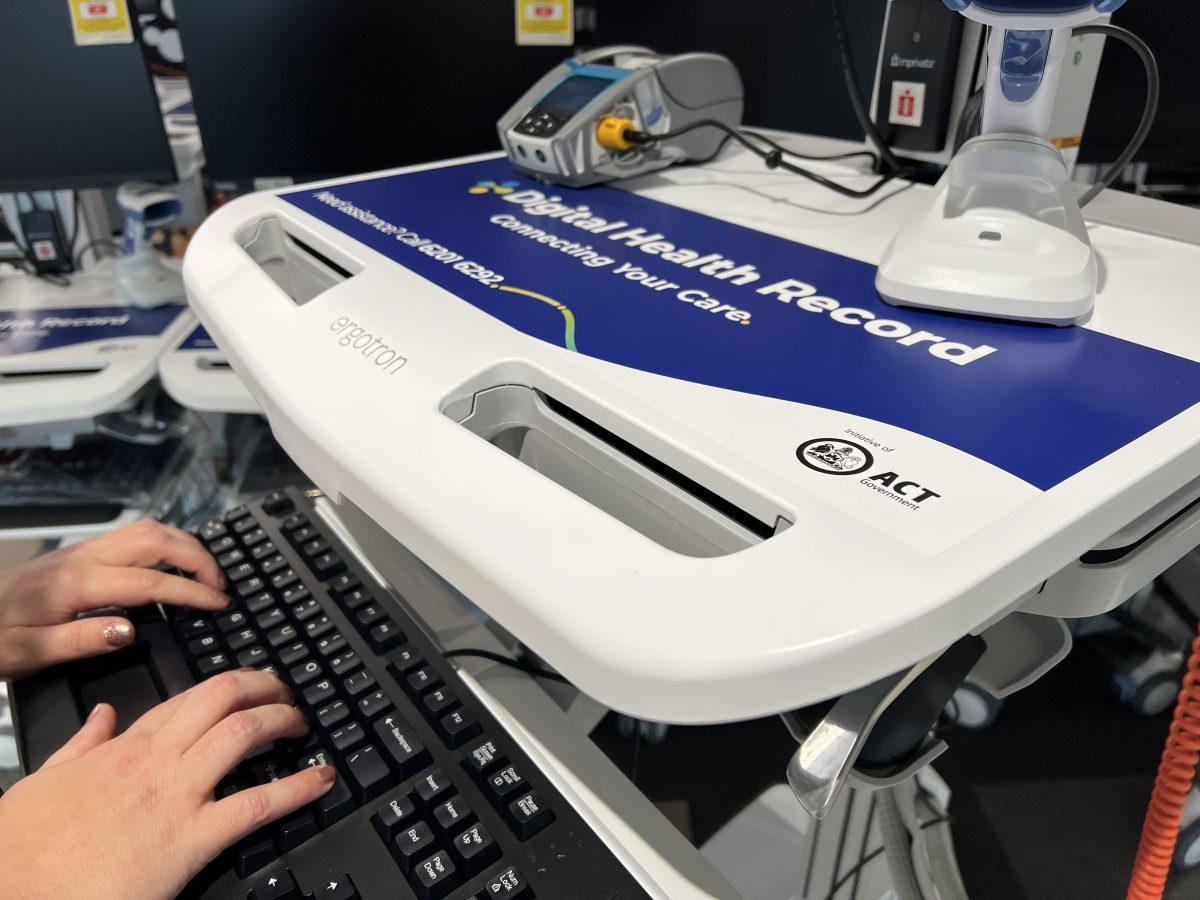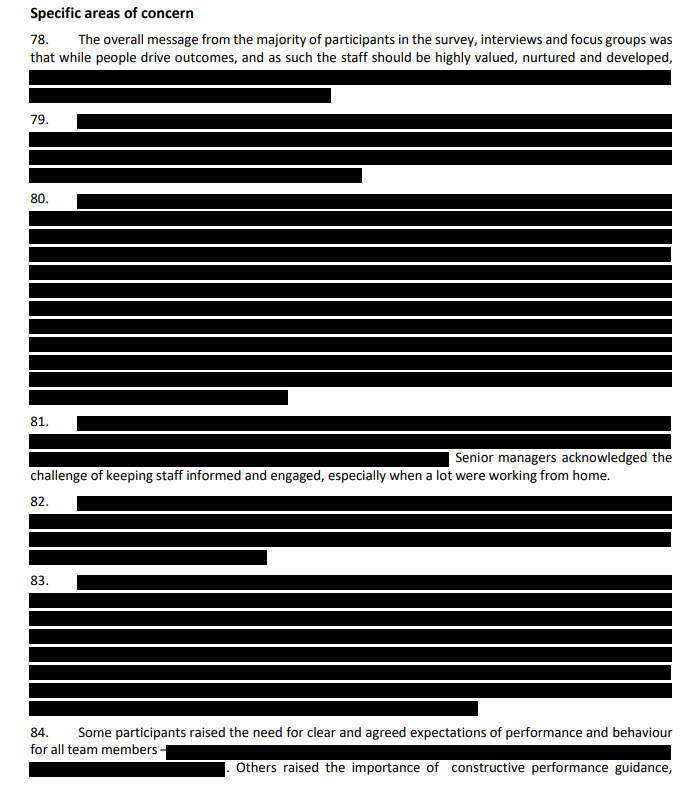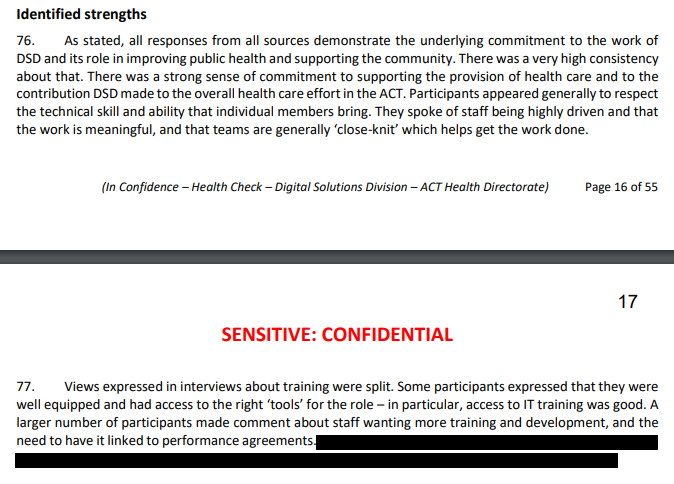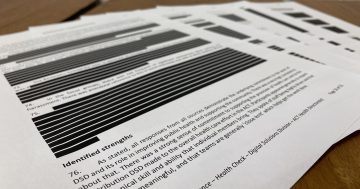
The Digital Solutions Division is involved with the rollout of the Digital Health Record. Photo: Supplied.
ACT Health has denied a Freedom of Information (FOI) request to release staff survey results, citing full disclosure could be “reasonably expected to negatively impact” the directorate.
The Canberra Liberals requested the final report from the Digital Solutions Division (DSD) staff survey, which had been lodged to gain a fuller understanding of issues within the health system.
Shadow Health Minister Leanne Castley said it appeared all negative discussion had been redacted while the positive comments had been released.
“The starkest example is a section on ‘Identified strengths’, which has been released almost in full, whereas ‘Specific areas of concern’ is heavily redacted,” she said.
“Releasing only positive commentary and not the negative erodes confidence and potentially decreases future participation in the survey because staff could feel their feedback had been disregarded.”

The section relating to concerns by DSD staff was heavily redacted. Photo: Screenshot.
The Canberra Liberals have been especially interested in the DSD as it is responsible for the rollout of the Digital Health Record.
An ACT Health Directorate (ACTHD) Information Officer had identified three documents that could answer the Liberals’ FOI request, which sought the “report of the review of the ACT Health Directorate Division, and all correspondence with the Minister’s office regarding this review”.
However, in response, Health said they would only grant partial access to one document and denied access to the other two.
ACTHD people, strategy and culture executive branch manager Jodie Junk-Gibson explained in her response this decision had been made as the documents contained participants’ answers and verbatim comments, which she believed would be an “unreasonable disclosure” of an individual’s personal information.
“Confidentiality is integral to ensuring the integrity of the agency’s ability to conduct future surveys within the organisation,” she wrote.
“Providing reassurance of confidentiality to staff is imperative as it may reduce engagement and diminish the honest and truthful participation of staff members.”

The section on identified strengths from the DSD survey was largely intact. Photo: Screenshot.
She said the ACTHD had to take measures to protect staff from experiencing stress and anxiety when participating in surveys.
“The disclosure of this information would be detrimental to the area and could be reasonably expected to negatively impact on the wider directorate,” Ms Junk-Gibson wrote.
“The release of the redacted information would or could reasonably be expected to have a detrimental effect for the agency’s ability to conduct future reviews within the organisation as it will likely reduce future engagement in staff culture surveys.”
An ACT Health spokesperson provided the key findings and recommendations from the Division Health Check, which they said was piloted with the DSD in late 2022 when the DHR was being rolled out, to understand how to further support teams.
“The aim of the Division Health Check is to gain further understanding about how we can effectively support leaders, managers, and staff to continue to grow a truly great place to work,” they said.
“[It] will be rolled out to other divisions in a progressive format.”
More than 75 per cent of respondents said they felt inspired by their work, indicated their team managed conflict effectively and would recommend ACTHD as a good place to work, while more than 85 per cent said their team supported a positive workplace culture.
Almost all respondents (93%) reported that their team worked well together.
Reported challenges included that recruitment practices were “inconsistent” across the DSD while transparency about staff entitlements was poor and inconsistently applied.
It also noted there were “minimal opportunities” to build capability through learning and development programs, and staff mentioned they had a high workload with limited resources, leading to staff fatigue and burnout.
“Staff are reporting that they do not feel safe to express concerns,” it stated.
The ACT Health spokesperson said the decisions around the FOI request were made with staff confidentiality in mind and didn’t want to discourage them from participating in future surveys.
“A critical aspect to improving organisational culture is through building psychological safety for individuals and teams to express their experiences without reprisal or negative consequence,” they said.
“We are endeavouring to improve the opportunity for staff to share their views and experiences, which includes the ability to participate in opportunities such as a Division Health Check in a safe and open way.”
The staff survey was completed by 99 of the DSD’s 388 staff, with individual interviews and three focus groups also conducted.
Ms Castley has requested the ACT Ombudsman review the Health Directorate’s FOI decision.



















